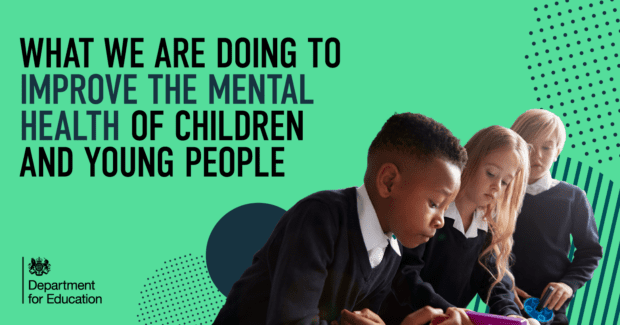The ongoing impact of the pandemic has underscored the critical importance of supporting the mental health and wellbeing of our children and young people.
During Children’s Mental Health Week, we released findings from our State of the Nation report, which examines trends in mental health and wellbeing recovery during the 2020/21 academic year, alongside the perspectives of children and young people on society and the future.
Here’s a summary of this important research and the steps we’re taking to improve the mental health of children and young people.
What Does the Report Reveal About Children’s Mental Health?
The report shows early signs of recovery in children’s wellbeing following the decline seen in 2020. Wellbeing levels fluctuated throughout the year, largely in line with the introduction and easing of pandemic restrictions.
Encouragingly, after a rise in probable mental health disorders in 2020, the report indicates that these levels stabilized in 2021. However, ongoing challenges remain in areas such as reduced participation in physical activity, limited access to extracurricular activities, and an increase in obesity rates.
How Are the Report’s Findings Being Used?
The insights from this report have already informed the development of support measures we’ve implemented. This includes our £15 million Wellbeing for Education Recovery and Return programs, which provided free expert training, support, and resources to school and college staff helping children and young people manage the additional pressures brought on by COVID-19, such as anxiety and stress.
Through our Mental Health in Education Action Group, we have also introduced a variety of new resources to support mental health and wellbeing recovery, including:
- Signposting Resources: To help school and college staff guide children and young people to the appropriate advice and support.
- Lesson Packs: Designed to aid schools in delivering the new Relationships, Sex, and Health Education curriculum.
- Wellbeing Support Videos: Created in collaboration with our Youth Mental Health Ambassador, Dr. Alex George, Public Health England (PHE), and First News, these videos offer tips and strategies to boost children’s moods in a positive and energetic way.
What Additional Measures Are Being Taken to Support Children’s Mental Health Post-Pandemic?
We understand that the pandemic’s impact on mental health is likely to be long-lasting, and we continue to monitor data to ensure our response is guided by the latest evidence.
Our commitment to promoting and supporting mental health and wellbeing in schools and colleges includes the following initiatives:
- Training for Senior Mental Health Leads: We’ve announced additional funding to enable schools and colleges to train a senior mental health lead this year, with a commitment to fund training for leads in all schools and colleges by 2025.
- £79 Million Mental Health Support Boost: Announced in March 2021, this funding is expanding children’s mental health services, including increasing the number of Mental Health Support Teams in schools and colleges to cover approximately 35% of pupils in England by 2023/24.
- Improving School Sport Facilities: The Government has allocated nearly £30 million annually to enhance and open up school sport facilities in England, as well as to improve Physical Education teaching in primary schools.
- Expanding Access to Extracurricular Activities: The Department for Education is supporting several initiatives to increase access to high-quality extracurricular activities, including a £3.4 million investment over three academic years to help the Duke of Edinburgh’s Award expand into more schools in England’s most deprived areas.
What About Support for Older Students?
Yes, additional support is available for older students as well. The mental health platform ‘Student Space’ will receive more funding to continue operations through the end of the academic year.
Launched in August 2020, Student Space is an online mental health platform available to all higher education students across England and Wales. Led by the student mental health charity Student Minds, the platform was developed collaboratively with services, higher education professionals, researchers, and students to complement existing mental health and wellbeing services.
Student Space offers a range of mental health and wellbeing services, including one-to-one support through counselling, email, and phone helplines, along with essential information and advice.


